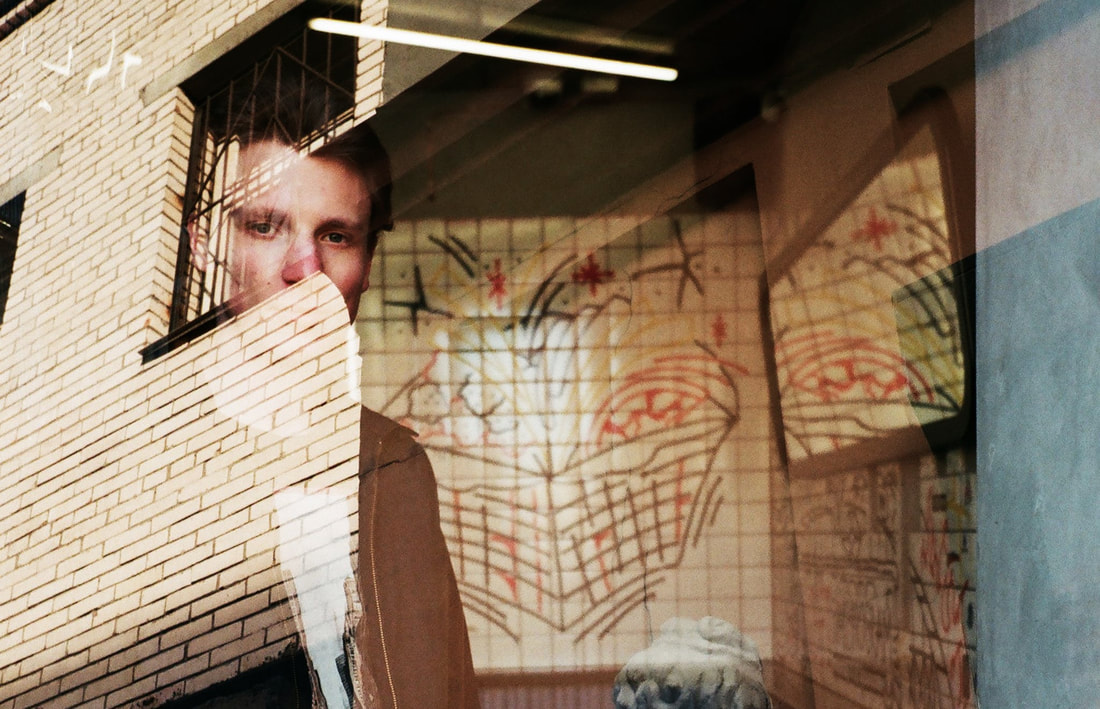|
‘Intuition is like reading a word without having to spell it out.’ (Agatha Christie) I had the privilege of training an inspiring, cross-cultural group of participants in South Africa, Rwanda and the UK this week who work in different roles in the same international non-governmental organisation (INGO). This online Action Learning Associates programme was designed to enable them to facilitate Action Learning sets (that is, groups) confidently and effectively. (If you’re unfamiliar with the concept of Action Learning, it’s a semi-structured, small-group, peer-coaching process that’s used widely in leadership and management development programmes and as part of wider organisation development (OD) initiatives). One of the areas we touched on during the training event is the value of drawing on intuition when facilitating groups. We could consider the facilitator’s role simply in terms of a series of tasks, e.g. introducing a meeting; leading a check-in; contracting ground-rules; guiding the group through the sequential steps of an Action Learning process; facilitating a review at the end. These are important elements that we learn to handle skilfully. At a deeper level, however, we can learn to tune into our intuition. This will help us to discern, for instance, unspoken issues; underlying group dynamics; or when a person-group is stuck or ready to move on. Intuition can feel mysterious, a sense of ‘knowing’ that we may experience bodily or as a feeling rather than as a rational concept in our mind. One of most mysterious experiences I had was when training a group of church and community leaders in Action Learning facilitation. When I first encountered one of the participants, the word ‘Ruth’ kept coming to mind. I mentioned this to him very tentatively and he looked astonished. Apparently, he was about to complete a PhD study on the book of Ruth in the Bible. I had no idea. For me, spiritual discernment sits close to intuition. I always pray deeply before coaching or facilitating a set. How do you draw on intuition in your own life and practice? I’d love to hear from you!
10 Comments
Coaching is listening for a voice. More accurately, at deeper levels, for 4 voices. Firstly, the voice of the client: his or her concerns, aspirations, thoughts and feelings. This is the traditional focus of coaching and counselling, seeking to hear the client, to listen, pay attention, help the client to hear his or her own voice more clearly. Secondly, the voice of the client’s environment: his or her background, experience and context. It’s what Gestalt calls the field. The introjects, assumptions, cultural norms and systemic constructs that shape and speak implicitly through the client’s outlook and experience. The hidden voices behind the client’s voice. Thirdly, the voice of God: revealing, guiding, challenging and consoling. The clear, confusing, mysterious voice of God who whispers in sound, in silence, through the visible and invisible. The God who is the Word, who speaks the eternal Divine language behind human language, calling us inwards, outwards, towards and beyond. And finally my own voice: my learning, intuition, experience and discernment. It’s about listening for a resonance, a dissonance, a sense of harmony with the client, with his or her world, with God. It’s an art, a science, an energetic struggle, a dance. It’s a precious and challenging call, but the potential for transformation is significant. A ‘check engine’ warning light flashed up on my car dashboard this week. It turned out to be a false alarm – a warning that was, apparently, triggered by jump start last week. I know that now. The unnerving part was the not-knowing in-between. What is there was something seriously wrong? How am I to know if a warning symbol can be ignored or if it’s highlighting a genuine cause for concern? In this case, I was able to take the car to a local mechanic to have it checked out. When, however, we experience ‘warning lights’ psychologically or emotionally, it can be harder to discern. A manager is invited to present to an Executive Team and feels deeply anxious. Is that a false alarm or, perhaps, an intuition that is flagging up what ought to be considered a genuine risk? A team member is asked to give critical feedback to a colleague in another department and feels worried about how they may react. Are they being over-sensitive or should they be concerned? Here are some insights to help when making a judgement call. 1. Has the person experienced similar situations and associated emotions in the past? If so, their past may be re-triggering feelings in the present. 2. Does the person have any tangible evidence that supports their concerns? They may be making hypotheses or assumptions. 3. Would different others be likely to feel the same if faced with a similar situation? It may be a personal or cultural narrative the person is telling themself. A tricky part is that it’s not always an either-or phenomenon. The anxious manager may have experienced something similar in the past and the Executive Team may be demanding unrealistic levels of performance. The team member may be highly-sensitive and their colleague may react defensively. How do you distinguish between a false alarm and something that’s real? Do you trust your your feelings or intuition most, or lean more towards evidence or reason – or something else? Mike Wilson is a great leader and challenged me with his typical warmth and smile: ‘Nick, I’ve noticed you always stamp draft on the front cover when you submit a paper, proposal or report. I’m going to encourage you not to do it next time and to see how that is for you...’ Mike was astute and had touched on a deep point. What did draft represent for me? Why did I do it? This event was some years ago now but I remember that conversation, that feeling, that revelation, vividly.
A previous leader had commented that I produced very high standards of work and yet, on the flip side, it sometimes I meant I spent too much time and effort on one task to the detriment of another. It was as if I was trying to do everything perfectly, irrespective of what the task called for. I felt continually pressured and stressed and blamed it on unrealistic demands. I needed to learn that, in most situations, ‘good enough’ isn’t mediocre or a failure. It really is good – and enough. There are, of course, circumstances in which exceptionally high standards are important. I look at the Rio Olympics this week and marvel at the incredible training, stamina, ability and achievements. Yet if we apply the same principle to everything we do, we risk becoming anxious and disheartened, exhausted or depressed. I think the key here is in something about wisdom and discernment, perspective and choice. This is so much easier to achieve with support than on our own. So here are some useful coaching options: 1. Psychodynamic, cognitive behavioural or personal construct coaching to explore and address beliefs and values. 2. Person-centred or mindfulness coaching to notice and handle feelings differently. 3. Gestalt, systems-based or social construct coaching to identify and address relational, cultural and contextual drivers. 4. Appreciative inquiry, strengths-based or solutions-focused coaching to build on ‘good’ and create a new future. What is real, what is true, how can we know? These are questions that have vexed philosophers for centuries. In more recent times, we have seen an increasing convergence between philosophy and psychology in fields such as social constructionism and existential therapy. How we experience and make sense of being, meaning and purpose is inextricably linked to how we behave, what we choose and what stance we take in the world. As a Christian and psychological coach, I’m intrigued by how these fundamental issues, perspectives and actions intertwine with my beliefs, spirituality and practice. Descartes once wrote, ‘If you would be a real seeker after truth, you must at least once in your life doubt, as far as possible, all things.’ It’s as if we must be prepared to suspend all assumptions about ‘what is’, to explore all possibilities and dare to think the unthinkable in order to grow and make our best contribution. Things are not always as they at first appear. There are sometimes multiple explanations for the same phenomenon, depending on the frame of reference we or others use to interpret it (see, for instance, Gareth Morgan’s seminal work, Images of Organisation, 1986). We are sometimes blinded to what’s in front of us by our prejudices, preconceptions, cultural constraints or rigid views of the world. It can be hard to maintain healthy scepticism without cynicism. I see it with clients, sometimes in myself too. A sense of being trapped by a fixed Gestalt, a cognitive distortion, an inherited or learned belief system. An inability to see, to recognise the box that we’re in, never mind to see or think outside of it. An avoidance of deep, difficult questions because of the discomfort, confusion or anxiety they may evoke. If we’re not careful, if we can’t find the right help when we need it, it may limit our lives and our learning. I think this is where coaching can play a very important role, helping pose and address some deep questions. Nick Bolton commented insightfully in Coaching Today that, ‘To explore a coaching issue existentially is to understand the relationship that the presenting problem has to the human condition to which it is a response, and to remain focused on enabling a change of perspective that allows the client to move past their current challenge.’ He also provided some helpful examples: ‘For instance, how is a client’s procrastination around something that seems to matter to her a failure to remember that life comes to an end? How is a client’s need to be unconditionally loved by his partner an attempt to deal with existential rather than interpersonal isolation? (And the solutions are very different things). How is someone’s lethargy simply a part of their fear of taking responsibility for their life?’ (July 2013, p17) A metaphysical, existential or theological dimension can shift the entire paradigm of the coaching conversation. The question of whether a client should apply for this or that job is influenced by her sense of purpose. If she is willing to consider that God may exist and have a plan for her life, the whole situational context will change. It can be a dizzying and exciting experience, yet it’s really a question of how courageous and radical we and the client are prepared to be. How do we make sense of situations when it all goes wrong? How do we help clients do the same? I had one such incident this weekend. Having psyched myself up for a long cycle ride, the valve on my rear tyre broke just as I was setting off. I couldn’t fix it so I replaced it with a new tube. When I started to pump that up, however, the tube burst. I couldn’t believe it. End of ride. I felt surprised and frustrated. Why do these things happen? A couple of hours later, however, I felt relieved as the heavens opened with an unexpected downpour of cold rain. If I had made it out on the bike, I would have been caught out in the open, soaked to the skin with no waterproofs. Was this providential? Did the tyres mysteriously go wrong so that I would avoid this storm?
Alison Hardingham cites a Chinese Taoist story that fits the theme well. It describes a farmer in a poor country village. He was considered very well-to-do because he owned a horse that he used for ploughing, for riding around and for carrying things. One day his horse ran away. All his neighbours exclaimed how terrible this was, but the farmer simply said, ‘Maybe’. A few days later the horse returned and brought two wild horses with it. The neighbours all rejoiced at his good fortune, but the farmer just said, ‘Maybe’. The next day the farmer’s son tried to ride one of the wild horses. The horse threw him and broke the boy’s leg. The neighbours all offered their sympathy for this misfortune but the farmer again said, ‘Maybe’. The story continues. The next week, conscription officers came to the village to take young men away for the army. They rejected the farmer’s son because of his broken leg. When the neighbours told him how lucky he was, the farmer replied, 'Maybe’. (Psychology for Trainers, 1998, p116). The meaning of the story is clear. We are never quite sure of the future consequences of actions or experiences in the present. How we experience events, how we feel about them, is also influenced by how we frame them, how we construct them, what we believe about them. It’s the focus of a number of fields of research including cognitive behavioural psychology and social constructionism. In this same vein, I’m fascinated by an enigmatic place in the Bible where it describes the Spirit preventing people doing what they had set out to do and, presumably, were convinced was the right thing to do. (If you’re interested, check out Acts 16: 6-8). The point it conveys is that God may at times intervene in human lives to stop us doing something, e.g. if the unforeseen consequences may be harmful to us or others, or if there’s something else that’s more important for us to do. The Bible doesn’t attribute the direct intervention of God to every human experience. Nevertheless, for me, this example opens an intriguing window into a spiritual dimension that has important implications for how I make sense of what happens to and around me. Quite a while ago, I studied at a college. I really struggled with the whole thing and, since then, have felt a passion to support students going through similar experiences. Two years ago, the college sent out a flyer asking for coaches and mentors for its students. I felt delighted. This was my moment. I sent an email explaining my background and coaching experience and qualifications, including coaching and mentoring students from other colleges. No reply. I sent another email to the same person. No reply. Bemused, I sent an email to the college administrative team. No reply. Now feeling frustrated, I sent an email to the college registrar. No reply. Was this just a terrible system with poor client care, or was there a deeper principle at work? I’ve had other similar experiences. Some years ago I worked in a Palestinian hospital in the Middle East. The experience really screwed me up but, on return, I felt desperate to go back. I tried and tried, applying for job after job and yet every one drew a blank. I tried volunteering with various organisations and still drew a blank. However, in the back of my mind, in my spirit, I had this growing intuition, a 'spiritual discernment', that this wasn’t the right path for me. I don’t know what the consequences might have been if I had gone but this felt more than coincidence. So tell me. Have you had similar experiences where your or a client’s best efforts have failed? What sense have you made of it? What new insights or opportunities emerged as a result? I had a new, short, mini-article published online in About Leaders this week called, ‘What is really going on here?’
http://www.aboutleaders.com//bid/176196/leadership-dynamics-what-is-really-going-on-here?source=Blog_Email_[Leadership%20Dynamics%3A. It introduces examples of different frames of reference we may use when working with people as a leader or coach. I would love to hear what you think, what frames you use and what experiences you have in this area. Looking forward to hearing from you! What’s your theory of change? What issues are you trying to address? What creates and sustains those issues? What kind of interventions and when are most likely to prove successful? What would success look and feel like, and for whom? What is your overall goal? These are some of the questions we looked at on a Theory of Change workshop I took part in yesterday. Theories of change are becoming increasingly commonplace in the third sector, paralleling e.g. strategy maps in other sectors. There are a number of reasons for this. Charities and NGOs are under increasing scrutiny from supporters and funders to demonstrate how their resources are being used to achieve optimal impact. This has created a whole industry in impact evaluation.
The third sector is maturing too. No longer driven into action by empathy or altruistic instinct alone, organisations in this sector have more experience, more evidence of what works and what doesn’t and more analysis and understanding of why. The issues have turned out to be more complex than some had originally imagined, making significant and sustained progress challenging. Against this backdrop, a theory of change can prove valuable. It aims to clarify goals and outcomes and to work back to activities and other factors that will enable the outcomes to be achieved. In articulating these things clearly and succinctly (often in simple graphic flowchart form), underlying assumptions and causal links can be surfaced, explained and tested. At heart, a theory of change answers questions such as ‘What are we trying to achieve?’, ‘What is necessary for the goal to be achieved?’ and ‘What’s the rationale behind our intervention strategy?’ In doing so, it makes the organisation’s focus, operations and use of resources transparent, accountable and more open to challenge and improvement as new research and evidence emerges. I find myself particularly drawn to the critical-reflective aspects. For instance, one NGO I worked with conducted a fundamental strategy review starting with these same principles, asking questions such as, ‘Why are people poor?, ‘What causes and sustains poverty?’, ‘What interventions make the greatest difference?’, ‘What is our optimal contribution?’ One of the interesting challenges for a third sector organisation is whose voice is represented in framing and answering such questions, e.g. donors, beneficiaries, trustees, staff, volunteers. A charitable organisation I work with currently conducted a strategy review recently, inviting feedback from beneficiaries using surveys, focus groups etc. to find out what they struggle with and aspire to and what role they would want to see the organisation playing in helping them address or achieve these issues. The needs and aspirations that surfaced have been summarised as ‘I’ rather than ‘we’ or ‘they’ statements in clear and colloquial language, keeping the focus on what each individual as beneficiary wants to experience as a result of the organisation’s actions. This is a sharp contrast with some experiences I’ve had in the past. In one instance, a third sector organisation I worked with set up a drop-in project providing advice and support for long-term unemployed people. The Local Authority provided funding using ‘number of people using the service’ as its key success criterion. Paradoxically, the more successful the service was in enabling local people to find employment, thereby reducing the number of people who needed to access the service, the more the service was deemed statistically by the Local Authority to be failing. A theory of change can help surface such outcomes and assumptions at an early stage, enabling more constructive dialogue and agreement between agencies and stakeholders. I believe the potential for theory of change extends beyond third sector organisations aiming to articulate their vision, strategy, plans and reasons behind them. I’ve used similar methodologies to explore and articulate an organisation development strategy within a third sector organisation. We started by exploring a number of questions with diverse stakeholders and groups such as, ‘What kind of organisation are we trying to develop?’, ‘Where are we now?’, ‘Why are things as they are?’, ‘What drives or sustains how things are?’, ‘What matters most to people here?’, ‘Who or what influences change?’, ‘What would it take to achieve the changes?’ This enabled us to create a map showing goals, activities, assumptions and causal relationships. The same principles can be applied at team and individual levels too, e.g. for leadership, coaching, mentoring, training and counselling purposes. It enables dialogue between different parties and keeps rationale and assumptions explicit. If assumptions are clear to all parties, they can be challenged and revised in light of different preferences, perspectives, realities and evidence. I’ve used adaptations of this approach with people and organisations where Christian beliefs have been held as important and integral, developing the model as a theology of change. A theology of change may surface and articulate e.g. God’s purpose, values, presence and activity in the world, the role of the Spirit and Christians, discerning a sense of ‘calling’. In my experience, the language and methods of applying theory or change need to be adapted for different purposes and audiences. It represents a logical-rational paradigm that is likely to work well for some people and cultures but not so well for others. Using Honey & Mumford’s learning styles as one possible frame of reference, theory of change (as the name implies) may appeal most to people, teams or cultures with a theorist orientation. Reflectors may be attracted most by its emphasis on surfacing underlying assumptions, activists by the evidential dimensions and pragmatists by its focus on outcomes. Perhaps the key lies in using the principles it embodies flexibly and sensitively in the context of real human dialogue and relationship. Critical reflexivity…hmm…what’s that? Sounds complicated. It's something about noticing and paying attention to our own role in a story; how I influence what I perceive in any relationship, issue or situation. I was re-reading one of my favourite books, An Invitation to Social Construction (2009) by Kenneth Gergen this morning which introduces this concept with the following explanation: ‘Critical reflectivity is the attempt to place one’s premises into question, to suspend the ‘obvious’, to listen to alternative framings of reality and to grapple with the comparative outcomes of multiple standpoints…this means an unrelenting concern with the blinding potential of the ‘taken for granted’…we must be prepared to doubt everything we have accepted as real, true, right, necessary or essential’. I find this interesting, stimulating and exciting. It’s about journeying into not-knowing, entertaining the possibility that there could be very different ways of perceiving, framing or experiencing issues or phenomena. It’s about a radical openness to fresh possibilities, new horizons, hitherto unimaginable ideas. It’s a recognition that all my assumptions and preconceptions about reality could be limiting or flawed. I’ve found this critical reflexivity principle invaluable in my coaching and OD practice. How often people and organisations get stuck, trapped, by their own fixed ways of seeing and approaching things. The same cultural influences that provide stability can blind us to alternative possibilities. The gift of the coach or consultant is to loosen the ground, release energy and insight, create fresh options for being and action. It resonates with my reading of the gospels. Jesus Christ had a way of confronting the worldviews, traditions and apparent ‘common sense’ outlook of those he encountered in such a way that often evoked confusion, anger or frustration. It’s as if he could perceive things others couldn’t see. He had a way of reframing things that it left people feeling disorientated. He operated in a very different paradigm. I will close with words from Fook & Askeland (2006): ‘Reflexivity can simply be defined as an ability to recognise our own influence – and the influence of our social and cultural contexts on research, the type of knowledge we create and the way we create it. In this sense, then, it is about factoring ourselves into the situations we practice in.' Who or what has most influenced your OD thinking and practice? What maxims or principles do you bear in mind as you approach organisational issues from an OD perspective? Someone asked me this question recently and I crystallised my response into seven statements, drawing on background influences including Morgan, Schein, Bolman & Deal, Gergen and Burr:
*Organisations do not exist but people do. *Every action is an intervention. *Actions have symbolic as well as rational meaning. *What’s important is not what happens, but what it means. *The same event has different meanings for different people. *People get trapped in their own psychological and cultural constructs. *What passes for rationality is often irrationality in disguise. These statements, taken as a whole, create a metaphorical lens through which I often view, analyse or interpret a situation or experience. They help me to consider an underlying question, ‘What is really going on here?’ before attempting to work with a client or organisation to devise a way forward. What maxims or principles do you use to guide your practice? |
Nick WrightI'm a psychological coach, trainer and OD consultant. Curious to discover how can I help you? Get in touch! Like what you read? Simply enter your email address below to receive regular blog updates!
|








 RSS Feed
RSS Feed